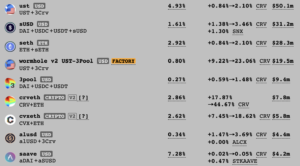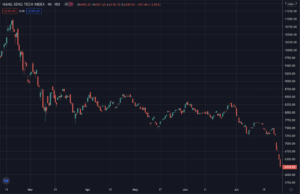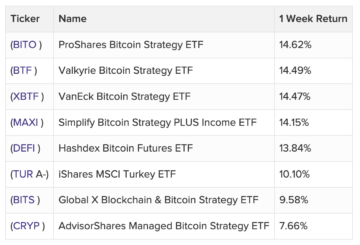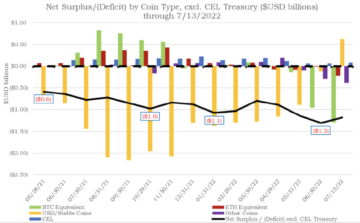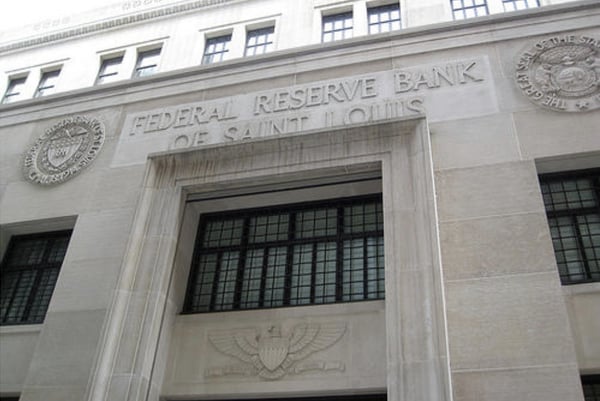
In a joint statement that aims to highlight crypto risks, the Federal Reserve Banks nonetheless made it clear that commercial banks can provide crypto related services.
“Banking organizations are neither prohibited nor discouraged from providing banking services to customers of any specific class or type, as permitted by law or regulation,” the Federal Reserve Banks said alongside other entities that supervise commercial banks as well as the monetary system.
They did however point out that actually holding crypto is “highly likely” to be unsound, stating:
“Based on the agencies’ current understanding and experience to date, the agencies believe that issuing or holding as principal crypto-assets that are issued, stored, or transferred on an open, public, and/or decentralized network, or similar system is highly likely to be inconsistent with safe and sound banking practices.”
The word ‘holding’ tends to mean having possession of the private keys. If instead someone else provides custody, like for Revolut for example, arguably the bank itself is not actually holding the assets, the custodian is ‘holding.’
In addition, although the word ‘highly likely’ clearly indicates that they shouldn’t, it is not an actual prohibition.
If therefore these banks adopt safe and sound practices, like securing insurance if they’re actually holding or using an insured custodian, it appears that based on this statement they are free to provide crypto services.
That follows a greenlight by the Bank for International Settlement (BIS), which tends to supervise central banks, allowing commercial banks to hold between 1% and 2% of their tier 1 capital in crypto.
BIS said banks might use crypto as a hedge, and they provided no limit if the crypto is a stablecoin.
Following these developments, we’re likely to hear a lot more on this ‘safe’ integration between cryptos and the established financial system, including banks.
They are starting to merge, and sooner or later banks that provide trading services for stocks, commodities, or bonds, will add crypto if they are to keep up with Fintechs or challenger banks.
The Fed statement clearly allows them to do so where it concerns cash settled bitcoin futures, like those provided by CME, but the bitcoin-finance space is getting a lot more sophisticated and is likely to develop further in that direction.
As such, from this statement it appears the issuer of fiat will not quite stand on their way, with the banking system so potentially starting to become crypto neutral.
- SEO Powered Content & PR Distribution. Get Amplified Today.
- Platoblockchain. Web3 Metaverse Intelligence. Knowledge Amplified. Access Here.
- Source: https://www.trustnodes.com/2023/01/04/fed-allows-banks-to-crypto
- 1
- 2%
- a
- actually
- add crypto
- addition
- adopt
- agencies
- aims
- Allowing
- allows
- alongside
- Although
- and
- Assets
- Bank
- Banking
- banking system
- Banks
- based
- become
- believe
- between
- bis
- Bitcoin
- Bitcoin Futures
- Bonds
- capital
- Cash
- central
- Central Banks
- challenger
- Challenger Banks
- class
- clear
- clearly
- CME
- commercial
- Commodities
- Concerns
- crypto
- crypto risks
- crypto services
- crypto-assets
- cryptos
- Current
- custodian
- Custody
- Customers
- Date
- decentralized
- decentralized network
- develop
- developments
- DID
- direction
- entities
- established
- example
- experience
- Fed
- Federal
- federal reserve
- Fiat
- financial
- financial system
- fintechs
- follows
- Free
- from
- further
- Futures
- getting
- having
- hedge
- Highlight
- highly
- holding
- However
- HTTPS
- in
- Including
- indicates
- instead
- insurance
- integration
- International
- Issued
- Issuer
- issuing
- IT
- itself
- Keep
- keys
- Law
- likely
- LIMIT
- Lot
- made
- Merge
- might
- Monetary
- more
- Neither
- network
- Neutral
- open
- organizations
- Other
- plato
- Plato Data Intelligence
- PlatoData
- Point
- possession
- potentially
- practices
- Principal
- private
- Private Keys
- Prohibition
- provide
- provided
- provides
- providing
- public
- Regulation
- related
- Reserve
- Revolut
- risks
- safe
- Said
- securing
- Services
- Settled
- settlement
- similar
- So
- Someone
- sophisticated
- Sound
- Space
- specific
- stablecoin
- stand
- Starting
- Statement
- Stocks
- stored
- such
- system
- The
- their
- therefore
- tier
- to
- Trading
- trading services
- transferred
- Trustnodes
- understanding
- use
- which
- will
- Word
- zephyrnet

